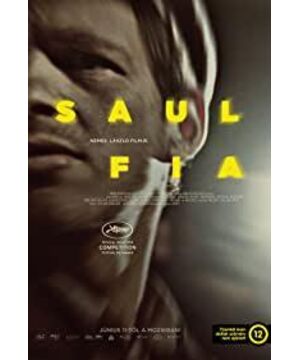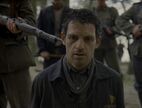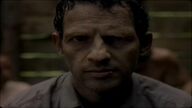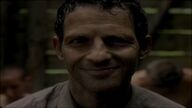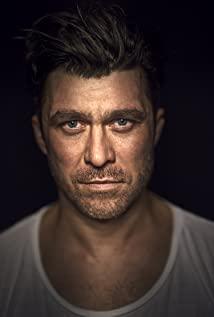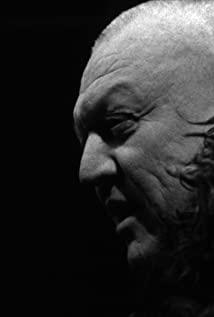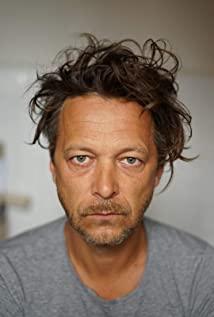For a movie reflecting the concentration camps of World War II, the screenwriter has chosen a rather unique angle among the common themes of a secret organization's escape. A Hungarian man who was tortured by the high-pressure life of the concentration camp is somewhat obsessive-compulsive. His series of incomprehensible but profound The act of deep sympathy, like a messy but strong enough rope covered with mud and blood, tightly links the 100-minute story together. On the basis of the screenwriting, the director skillfully used the skills of photography to blur all the tragic, cruel, cold-blooded, desperate, and numb scenes. From the beginning to the end, almost only the protagonist's face, even his The actions that are surrounded by the chaotic flow of people are also shaky and chaotic. The camera seems to be sticking to his side, crowded, coerced, pushed and beaten with him, and he also reversed the flow of people again and again with him, walking in the opposite direction, trying to grab the wilted child with his dying hand. Greenleaf, an almost compulsive search for the Rabbi, or a salvation of faith. From this, the audience can understand a "close-to-body" camera language, plus the close-up close-up of the protagonist's facial contours, edges and corners, eyes and facial expressions. During the 100-minute close-up follow-up, the audience gradually has an experience of empathy, Nazism. The humiliation with the collar seems to hang on the neck of the audience, the curses seem to be deafening in the ears, the death knell is beaten one after another, the corpse is running and the shovel throws the ashes at the river, the kind of exhaustion and despair. To the last breath, it was as if he was licking on his body.
The common secretly instigated escape from the concentration camp is thus led by a unique character, a special psychological state, and a special expression technique: the fellow inmates who are also "dispatch teams", the familiar concentration camp bridges. , Blackmail, credulity, rescue and unity, all degenerate into the background, but it is continuous, which not only becomes a complete story, but also highlights the protagonist's behavior and profound human psychological activities in this short period of time. As a World War II movie, it is quite distinctive. 100 minutes of close follow-up, no boredom, and the protagonist share the same fate, breathing can be heard, heartbeat can be heard, woes coexist, grief and anger are shared. Even at the end of the film, the protagonist's last smile also gives people a sense of relief. Although this kind of liberation is really helpless and negative, there is no redemption and no ending, whether it is personal or historical, it is so insignificant that it is not worth recording in detail.
However, it is precisely because of this near-extreme sophistication and the director's paranoia about special performance techniques that the film is slightly monotonous. The film's expressive power is quite strong. The suffering of the concentration camps is deeply felt. The analysis of various human natures is both light and heavy, and it is also commendable. However, because it focuses too much on one person's paranoia, it will inevitably appear thin. The emotions of the protagonist towards a child who has not escaped the clutches of death by chance, in my understanding, are the author's refinement of human nature and the reflection of the collective consciousness of the victims in the concentration camps in the individual, but although there is a solid enough foundation, the film However, the individual choices in the book can only make people understand and sympathize, and cannot summon the approval of the public. The feeling of a single person, although literary and artistic, is high, but as long as it deviates from the common sense and choices of the public, it cannot lead to positive thinking, it is only guided by negative tolerance, and even resistance is only for the hope of redemption, then, what the film wants to express The idea of can only be sidelined.
By the way, except that the photography is quite distinctive (although it is intentional, the blurring of a large area will definitely attract Zang Fu). I think Rorig's performance is pretty good. It is also a personal show movie, this is a work of skill. Much better than some big-name solo shows.
View more about Son of Saul reviews


